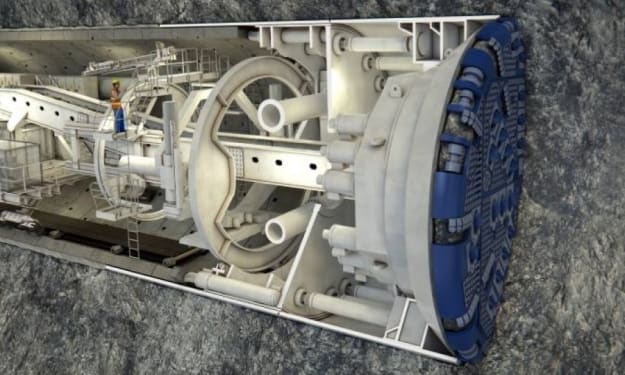Space exploration refers to the study and exploration of outer space using manned and unmanned spacecraft. It is a multidisciplinary field that involves astronomy, astrophysics, planetary science, engineering, and other related fields. The main goals of space exploration include advancing scientific knowledge, expanding human presence beyond Earth, and discovering new resources that can benefit humanity.
The history of space exploration dates back to the 1950s, when the Soviet Union launched the first satellite, Sputnik 1, into orbit around Earth. This sparked the space race between the Soviet Union and the United States, which led to many significant achievements in space exploration. Some of the most notable accomplishments of the space race include the first human spaceflight by Yuri Gagarin in 1961 and the first moon landing by Neil Armstrong and Buzz Aldrin in 1969.
Since then, many countries have launched their own space missions, including China, India, and European Space Agency member states. The International Space Station (ISS) has also been in operation since 1998, providing a platform for research and collaboration among multiple countries.
One of the most exciting areas of space exploration is the search for life beyond Earth. Scientists are searching for signs of life on other planets and moons in our solar system, such as Mars, Europa, and Enceladus. In addition, telescopes such as the Hubble Space Telescope and the upcoming James Webb Space Telescope are being used to search for planets outside our solar system that may be able to support life.
Another area of focus in space exploration is the development of new technologies that can make space travel more efficient and affordable. Private companies such as SpaceX and Blue Origin are working on reusable rockets and spacecraft that can drastically reduce the cost of space travel. In addition, researchers are developing new propulsion technologies, such as ion engines and nuclear propulsion, that could enable faster and more efficient space travel.
Space exploration also has important implications for national security and defense. Satellites and other space-based technologies are used for communication, navigation, and surveillance, among other purposes. In addition, the ability to launch spacecraft and explore space is seen as a symbol of technological prowess and global power.
However, space exploration also presents many challenges. It is expensive and requires significant resources and expertise to launch successful missions. Astronauts face a range of hazards, including radiation exposure and equipment failure, which can be life-threatening. In addition, space debris and other environmental factors pose risks to spacecraft and can make space exploration more difficult.
Despite these challenges, space exploration remains an important area of research and development. It has the potential to advance scientific knowledge, expand human presence beyond Earth, and provide valuable resources for humanity. With the increasing interest in space exploration from private companies and governments alike, we are likely to see many exciting developments in the years to come.Space exploration has fascinated humanity since the dawn of civilization. From ancient astronomers who studied the stars to the space race between the United States and Soviet Union during the Cold War, humans have always sought to expand our understanding of the universe and our place within it. Today, space exploration continues to capture our imaginations and inspire us to explore new frontiers.
One of the most significant achievements in space exploration was the Apollo 11 mission, which saw humans land on the moon for the first time in 1969. This momentous achievement represented a major milestone in human history and opened up new possibilities for space exploration. Since then, many other countries have launched their own space missions, including China and India.
In recent years, there has been renewed interest in space exploration and research. Private companies such as SpaceX and Blue Origin are developing new technologies and strategies for space travel and exploration. They are working to make space exploration more affordable and accessible, with the goal of eventually establishing a permanent human presence on other planets.
Space exploration has many benefits, both practical and symbolic. One of the most significant benefits is the advancement of scientific knowledge. Space research has led to many important discoveries and advancements in fields such as astrophysics, astronomy, and planetary science. Space exploration has also helped us better understand our own planet, including climate patterns and environmental changes.
Another practical benefit of space exploration is the potential for resource discovery. Asteroids and other celestial bodies contain valuable resources such as metals and minerals that could be used to support future space missions or even help solve problems on Earth. In addition, the exploration of other planets could help us better understand how to sustain life in harsh environments, which could have implications for our ability to survive on Earth in the face of climate change or other environmental challenges.
Symbolically, space exploration represents humanity's desire to push beyond our limits and explore new frontiers. It inspires us to dream big and work toward ambitious goals, and it reminds us of our shared humanity and the vastness of the universe.
However, space exploration also presents many challenges. It is expensive and often requires years of research and development before missions can be launched. In addition, space travel is risky, with astronauts facing a range of hazards such as radiation exposure and equipment failure. As we continue to explore new frontiers, we must also be mindful of the potential environmental impacts of space exploration and ensure that our actions are sustainable and responsible.
Despite these challenges, space exploration remains an important area of research and development. With the rapid advances in technology and the increasing interest in space exploration from private companies and governments alike, we are likely to see many exciting developments in the years to come. From the search for life on other planets to the development of new technologies that could revolutionize space travel, the future of space exploration is full of promise and possibility.
About the Creator
ammar
blogger







Comments
There are no comments for this story
Be the first to respond and start the conversation.